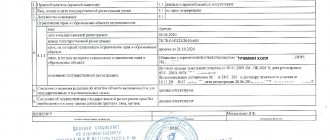Insurance for an apartment or apartment seems to many to be a waste of money. People often think about the need to spend money on it after a flood, fire or theft has occurred. Insurance can be flexible - you only pay for what you need. But insurance in the event of an accident will help save money and nerves, and eliminate disputes with neighbors.
We looked at the most popular types of insurance: comprehensive policies, voluntary insurance in housing and communal services receipts and title insurance. We figured out how much protection will cost and how to choose the appropriate option.
Comprehensive insurance
With comprehensive insurance, you can choose insurance risks at your own discretion. There are many options, you can protect yourself from any unforeseen circumstances. You can buy ready-made insurance that suits you or you can independently design the risks that will be included in your policy.
When it's useful
You can insure the decoration and equipment, furniture and appliances, structural elements, and civil liability to neighbors.
Typically protected against risks such as: fire, flood, gas explosion, natural disasters, theft, civil liability. But you can insure anything - for example, the policy can cover a lightning strike or a short circuit.
How much does the policy cost?
The cost of insurance starts from several thousand rubles. There are policies for 500–600 rubles. per year, but this is a very simple option with little coverage. For that kind of money you can insure, for example, furniture and equipment for 100,000 rubles.
On average, the cost of comprehensive insurance with good coverage costs 4,000–7,000 rubles. in year.
What does the cost depend on?
The logic behind increasing the cost of a policy is simple: the more risks you want to cover, the more expensive the policy will be. But a lot depends on the housing itself and the rates of a particular insurance company.
If the apartment or apartment has expensive repairs and equipment, it makes sense to take out a policy with an inspection by a representative of the insurance company. If all this is missing, you can do without a visit from the insurer.
Please note that the amount of compensation may be distributed differently. For example, most of it will cover furniture and appliances, but it will not cover damaged finishing after renovation.
When choosing insurance, include risks based on your situation - this will save money. It is more profitable to insure the most important elements of your home: structural parts (load-bearing walls, ceilings, balconies), decoration or movable property (furniture and anything valuable that can be removed in case of theft).
Additional parameters that increase the cost of insurance:
- gasification of the house;
- the presence of wooden floors;
- renting out an apartment;
- planned repairs;
- first or last floor.
You should not hide the presence of these parameters - providing false information will deprive you of the right to insurance.
It is convenient to compare approximate prices on aggregator sites. Calculate several options at once - for example, by changing the parameters of the cost of finishing and civil liability.
Insurance calculation on the website sravni.ru
The greater the amount of compensation we can hope for, the more expensive the insurance itself will be. Because of this, the cost of policies even for the same insurance company may differ by two times.
It makes no sense to overstate the amount of insurance coverage: compensation will be paid based on the actual cost of the damage. Remove or reduce what you don't need - the price of the policy will decrease.
Pay attention to the franchise
Be sure to pay attention to whether the policy provides for a deductible.
According to paragraph 9 of Art. 10 of the Law of the Russian Federation No. 4015-1 of November 27, 1992, the franchise is an amount that is not subject to compensation upon the occurrence of an insured event.
Example
The deductible under your insurance contract is RUB 30,000. You were flooded, but the damage amounted to 25,000 rubles. In this case, you will not have to count on payment. The insurance company will only get involved if the damage is more than 30,000 rubles.
A policy with a deductible is cheaper than a regular policy, but in cases of minor damage you may be left without compensation.
In order to guarantee compensation for losses associated with loss (destruction) or damage to residential premises, residential premises can be insured in accordance with the law (Article 21 of the Housing Code of the Russian Federation). Regulation of insurance relations is carried out on the basis of legislation, which includes not only federal legislation, but also the legislation of the constituent entities of the Russian Federation. This does not fully comply with paragraph “o” of Art. 71 of the Constitution of the Russian Federation, which provides that civil legislation (including insurance legislation) is under the exclusive jurisdiction of Russia. Consequently, constituent entities of the Russian Federation cannot adopt acts containing insurance regulations. However, in practice, not only the constituent entities of the Russian Federation, but also municipalities adopt similar acts. Despite numerous discussions around the issue of compulsory insurance of residential premises (by analogy with compulsory insurance of civil liability of vehicle owners), the legislator has not established compulsory insurance of residential premises, which corresponds to Part 1 of Art. 935 of the Civil Code of the Russian Federation, in accordance with which the law may impose on the persons specified therein the obligation to insure: the life, health or property of other persons specified in the law in the event of harm to their life, health or property. Issues of voluntary insurance of residential premises were reflected earlier both in federal laws and in the laws of constituent entities of the Russian Federation. Insurance of property owned by a citizen, including residential premises, is not a mandatory type of insurance and does not entail the consequences established in Art. 937 of the Civil Code of the Russian Federation for cases of violation of the rules on compulsory insurance, which is confirmed by the Determination of the Judicial Collegium of the Supreme Court of the Russian Federation dated February 12, 1999. In accordance with Part 3 of Art. 935 of the Civil Code of the Russian Federation allows the establishment in law of the obligation to insure the property of the insured, but only if the insured is a legal entity that has under economic control or operational management such property, which is state or municipal property. The Civil Code of the Russian Federation does not contain rules on the possibility of legislatively establishing a citizen’s obligation to conclude an agreement with an insurer on insuring his property. A citizen can only be required by law to insure his civil liability to other persons. Order of the State Construction Committee of the Russian Federation dated June 28, 2000 No. 149 “On approval of Recommendations for the further development of insurance in the housing and communal services sector” provides for the following types of insurance of residential premises (or a combination of several): - insurance of housing stock or residential premises by its owner; — insurance of residential premises by its owner; — insurance of residential premises by tenants; — insurance of liability of the owner (owner, user) of the housing stock (residential premises) for causing harm to the property interests of third parties; — liability insurance of enterprises and organizations performing the functions of managing the housing stock and municipal infrastructure facilities on behalf of or on behalf of the owner, carrying out repairs and maintenance of the housing stock (contractors) for causing harm to the property interests of third parties; — liability insurance of owners (owners, users) of non-residential premises located in the housing stock in the event of damage caused to third parties; — insurance of liability of utility companies that supply the resources necessary to provide the housing stock with utilities for damage to third parties (a significant short-term increase in pressure in water and heat supply systems can cause accidents, and sudden surges in voltage in power supply networks can cause fires and etc.); — insurance of risks associated with the possibility of loss of housing as a result of loss of ownership. The system of organizing home insurance protection involves the selection of insurance risks that are most typical for a particular territory. At the choice of the local administration, these may be: fires; domestic gas explosions; water penetration through the roof; penetration of water as a result of the use of fire extinguishing agents; accidents of water supply, heating, sewerage and internal drainage systems; terrorist acts and illegal actions of third parties, etc. In Moscow, a socially oriented set of measures is being consistently developed to protect the property interests and housing rights of Muscovites using insurance mechanisms. In pursuance of the Moscow Government Decree No. 694 dated August 15, 1995 “On the residential insurance system in the city of Moscow,” the city is consistently developing a socially oriented set of measures to protect the property interests and housing rights of Muscovites using insurance mechanisms. Insurance of residential premises is carried out on the principle of voluntariness and taking into account the guarantees of the Moscow Government. The state institution of the city of Moscow “City Housing Insurance Center” is an organization authorized by the Moscow Government to implement the insurance protection system for the city’s housing stock. The selection of insurance organizations to participate in the residential insurance system in Moscow is carried out on a competitive basis. The winning insurance organizations enter into contracts with the Moscow State Institution “City Center for Housing Insurance”. The Moscow government recommended that authorized insurance organizations form and use reserves to finance measures to prevent and reduce the likelihood of insurance events occurring in the city's housing stock in the amount of at least 10% of insurance premiums received under residential insurance contracts. According to the Regulations on the insurance system in the city of Moscow for residential premises, approved by Decree of the Moscow Government of October 1, 2002 No. 821-PP, the purpose of the insurance system is to protect the property interests of home owners and the housing rights of users of residential premises violated due to the impact of random adverse circumstances, and also ensuring the safety of the city's housing stock. Insurance of residential premises, taking into account the measures guaranteed by the Moscow Government to protect the housing rights of citizens living in these residential premises, is carried out on the principle of voluntariness and does not limit the rights of citizens to insurance on other conditions. Insurers of residential premises can be their owners or tenants of residential premises of the city's housing stock, permanent residents and registered in them at the place of residence, as well as parents, adoptive parents, guardians or trustees on behalf of minors or incapacitated owners, tenants of residential premises. By agreement of all participants in the common property, only one of the co-owners, permanently residing and registered in the insured residential premises, can act as the insured of residential premises that are in common ownership of citizens. Foreign citizens and stateless persons cannot act as policyholders. Insurers of residential premises can be legal entities of any organizational and legal form provided for by the legislation of the Russian Federation, created to carry out insurance activities, who have received a license to carry out insurance of the appropriate type in the prescribed manner and have passed a competitive selection. The object of insurance is a residential premises (apartment, room), including its structural elements, finishing elements, engineering equipment, elements of internal communications related to this premises and corresponding to the standard design of the building in which this residential premises is located. Residential premises located in buildings of the city's housing stock are accepted for insurance, for the maintenance of which subsidies are allocated from the budget of the city of Moscow. Residential premises cannot be objects of insurance: - recognized as emergency in accordance with the established procedure; — having physical wear and tear of over 60%; - located in buildings included by the Moscow Government in the annual list of addresses of residential buildings subject to release in connection with demolition, reconstruction, conversion into non-residential buildings, with seizure of a land plot and for other reasons; — to which collection on obligations has been directed; - subject to confiscation; - in respect of whom, in cases provided for by law, the rights of employment or property have been terminated. In relation to the Regulations, insured events are recognized as damage or destruction of the insured residential premises as a result of the following events: 1) fire (exposure to flame, smoke, high temperature during a fire), including one that occurred outside the insured premises, as well as legal actions to eliminate it; 2) an explosion of gas used in gas supply systems of residential buildings for domestic needs, including those that occurred outside the insured residential premises; 3) accidents of heating systems, water supply, sewerage, as well as internal drains (including places where water intake funnels meet the roof), including those that occurred outside the insured residential premises. Damage (destruction) of the insured residential premises as a result of lawful actions to eliminate accidents of heating systems, water supply, sewerage, internal drains is equivalent to damage (destruction) of residential premises due to the accidents of these systems themselves. Plumbing, heating, and sewerage systems include public water supply, heat supply and sewerage systems, including pipelines, elements, devices, equipment, and instruments permitted by building codes and regulations for use in the relevant engineering networks. The following systems do not apply to the following systems: - household water-consuming devices; — appliances, including washing machines, dishwashers, including elements used to connect them to the pipelines of public water supply, heat supply and sewerage systems, to the drainage and water (shut-off) valves that provide this connection; - additional (not provided for by the design of the buildings in which the insured residential premises are located) sanitary fixtures and equipment installed in violation of the established procedure for the reconstruction of residential premises, up to the drainage and water-folding (shut-off) valves ensuring their connection to the pipelines of public water supply systems, heating and sewerage; — strong wind (over 20 m/sec), hurricane, tornado, squall, and/or accompanying precipitation. In the event of damage to residential premises insured by authorized insurance organizations, taking into account the Regulations on the insurance system in the city of Moscow for residential premises, approved by Decree of the Moscow Government of October 1, 2002 No. 821-PP, the Moscow Government is liable with the Insurer for compensation of losses in the form of payments of insurance subsidies . An insurance subsidy is targeted budget funds intended exclusively to pay for materials and work necessary to restore damaged residential premises. If funds are misused by the Policyholder, he may be subsequently deprived of the right to receive an insurance subsidy. The amount of the insurance subsidy for damage to residential premises as a result of an insured event is calculated based on the amount of losses caused and the established amount of liability of the Moscow Government. The amount of losses caused is calculated based on the actual (insurable) value of the residential premises, which is determined on the basis of the registration data of the MosgorBTI and legal acts of the executive authorities of the city of Moscow, adopted for the purposes of this insurance. If residential premises are destroyed as a result of an insured event (the residential premises are declared unfit for habitation), the Moscow Government guarantees (taking into account the established shares of liability): - the insured owner is provided with another residential premises to replace the lost one or compensation for losses in the amount of the insured value; — the insured-tenant is provided with another residential premises to replace the lost one. Citizens registered at their place of residence in a destroyed residential premises are provided with another residential premises (apartment), landscaped in relation to the conditions of the city of Moscow, meeting sanitary, technical standards and requirements established by legal acts of the city of Moscow, corresponding to the norm for the provision of residential premises. Residential premises to replace the lost ones are provided taking into account all residential premises available for use by citizens and members of their families, including those owned by them. If housing other than the destroyed one complies with the provision standard, then another residential premises in replacement of the lost one is not provided and compensation for losses in terms of the responsibility of the Moscow Government is not made. In exchange for the property lost as a result of an insured event, residential premises are transferred to the insured owners. When the Insurer recognizes the occurrence of an insured event and pays insurance compensation, the materials of the insurance investigation are transferred by the Insurer to the State Institution of the City of Moscow “City Housing Insurance Center” for the Insured to exercise the right to compensation for losses in terms of obligations (guarantees) of the Moscow Government. If there are signs of destruction of a residential premises, its inspection and drawing up of an act are carried out with the obligatory participation of a representative of the State Institution of the city of Moscow “City Center for Housing Insurance”. Losses caused to residential premises are defined as the amount of losses caused as a result of an insured event to structural elements, finishing elements, engineering equipment, elements of internal communications related to this premises and corresponding to the standard design of the building in which the insured residential premises is located. Calculation of losses is carried out in accordance with the legal acts of the executive authorities of the city of Moscow, adopted for the purposes of this insurance. In this case, changes in the percentage of wear and tear of structural elements and finishing elements of the apartment during the validity of the contract are not taken into account. Damages associated with previous insured events and not eliminated by the Insured before the occurrence of the last insured event or with events that occurred before the start or after the end of the contract are also not taken into account. The documentary basis for the fulfillment of the obligations of the Moscow Government are agreements between the Moscow State Institution “City Housing Insurance Center” and authorized insurance organizations, residential premises insurance contracts (insurance policies, certificates) concluded in accordance with the Rules for the insurance of residential premises in the city of Moscow and Regulations on the insurance system in the city of Moscow for residential premises, approved by Decree of the Moscow Government of October 1, 2002 No. 821-PP. The state institution of the city of Moscow “City Center for Housing Insurance”, based on the results of reviewing the materials of the insurance investigation, makes a decision on compensation for losses in terms of the responsibility of the Moscow Government. If the amount of losses does not exceed 10% of the insured amount and the fact of the occurrence of an insured event is established by the Insurer, a decision may be made to compensate for losses without providing documents from the competent authorities. The state institution of the city of Moscow “City Center for Housing Insurance” has the right to request from the Policyholder, the Insurer and the competent authorities additional documents necessary for making a decision. Payment of the insurance subsidy is made by non-cash payments to the account of the Insured (Beneficiary) or on his behalf to a specialized contractor that carries out restoration repairs of the apartment on the basis of an agreement with the Insured (Beneficiary). In the event of destruction of residential premises, the losses caused are determined in the amount of the insured value, and the insurance compensation is determined in the amount of the insured amount established in the insurance contract. Compensation for losses resulting from the destruction of residential premises can be made at the request of the Insured in kind. In this case, the Insurer, based on the Insured’s application, transfers funds in the amount of the insured amount to the budget of the city of Moscow. The amount of the insurance subsidy for each next insurance event (including expenses expedally incurred by the insured to prevent or reduce damage to the insured housing) cannot exceed the difference between the insurance value established in the contract and previously made payments for previous insurance cases that occurred during the period of the contract. If, on the facts related to the occurrence of an insured event, a criminal case has been instituted against the insured (beneficiary), the decision on compensation for losses regarding the responsibility of the Moscow government is suspended before the end of the investigation or court decision. If the insured receives compensation for losses caused in full or partly on the person guilty of their infliction, the state institution of the city of Moscow “City Housing Center” is exempted from the obligation to compensate them in the amount equal to the insured by the reimbursement of losses from the guilty person (proportionally established share of the responsibility ). If the compensation for losses under the insurance contract was made, the policyholder is obliged to return the funds of the city center of housing insurance in the amount of the insurance subsidy to the state institution of the city of Moscow. The conditions for insurance of residential premises under contracts concluded from January 1, 2003 have changed as follows: - the amount of the monthly insurance premium increased from 40 kopecks. for 1 sq. m up to 50 kopecks. for 1 sq. m, i.e. by 25%; - insurance value of 1 sq. m of the dwelling increased by 50%, from 6 thousand rubles. up to 9 thousand rubles; -The responsibility of the Moscow Government, when compensating for damage, decreased from 70% to 50%, and the liability of the insurer increased from 30% to 50%. For example, according to the Decree of the Government of Moscow dated October 1, 2002 No. 821-PP to insure the apartment with an area of 50 square meters. m, it is necessary to pay monthly 25 rubles. The insurance value under the insurance contract amounted to 450 thousand rubles from January 1, 2003. Since 2003, the amount of average payment on an insurance event increased one and a half times compared to 2002 and amounted to more than 10 thousand rubles.
If you are renting out a property
It is necessary to indicate that the apartment is for rent at the stage of registration of the policy. This will increase the cost. But if you hide this detail, they may later refuse to pay you.
Pay attention to insurance of household appliances and civil liability - if your guest floods the neighbors, you will still be responsible.
Some insurers have created separate policies for landlords and tenants that cover common risks. For example, insure against any damage that the tenant may cause. And the PIK-Arenda agency, together with AlfaStrakhovanie, offers clients to insure housing that is rented out, instead of withholding a deposit.
What you should remember when choosing comprehensive insurance
- Read the contract carefully and study the possible circumstances under which you may be refused.
- All insurance companies have a clear deadline within which you must report the problem. Otherwise, payment may be refused on this basis.
- You can be left without payment if the insured event occurred through the fault of the owner himself.
- When choosing an insurance company, carefully study the ratings and reviews. It is also useful to talk about this topic with friends who already have insurance.
- If an insured event occurs, much may depend on the appraiser's calculations. Sometimes it may not be needed: if the amount of damage is small, you may be offered N amount without additional proceedings. But often the appraiser still comes and inspects the damage. When drawing up documents, the percentage of wear and tear is taken into account - due to this, the amount of compensation may be small.
- It is worth keeping all documents, for example, checks, that may be needed to calculate compensation.
What can be protected in an apartment
As an object for insurance, you can choose any item in the apartment against all types of dangers. In this case, it is more advisable to protect yourself from those incidents that occur most often. These things include the following:
- The home itself, and in particular the ceiling, walls, loggia, parquet. In judicial practice, there are cases where a fire occurred due to the fault of neighbors on the balcony. Since the walls and parquet did not receive serious damage, compensation for damage was not awarded. So the owners were left with a burnt-out living space that was impossible to live in, but the insurance was powerless.
- Protection against fire and flooding of interior decoration. If you decide to protect yourself directly from incidents of this type, then the company can compensate for damage to expensive wall coverings and parquet. This is a very valuable type of insurance for apartments after renovation. If your neighbors flood you from above, or the housing and communal services decide to change the risers, you can compensate for the losses.
- Insurance of technical communications. This type of property protection allows you to return part of the funds for the repair of gas equipment, water risers, batteries, drainage and ventilation concepts that unexpectedly fail. The company undertakes to compensate for losses associated with the malfunction of each component.
- Protection against damage to property such as furniture located in the apartment itself. This includes all integrated and portable wardrobes, expensive accessories, clothing, appliances, electrical appliances and other interior furnishings.
- Today it is possible to include in apartment insurance the owner’s liability to neighbors in the same apartment. Quite often situations occur when flooding and other misfortunes occur due to the guilt of the owner of the insurance policy. If material damage is caused to other persons, the company will compensate for all possible losses.
Voluntary insurance in the housing and communal services receipt
Such insurance is immediately included in the payment for housing and communal services and is voluntary: you can pay receipts without insurance. It costs several times less than usual, but it does not have flexible conditions.
In Moscow, a similar insurance system includes protection against the consequences of:
- fire, including one that did not occur in your apartment;
- explosion for any reason other than terrorist acts;
- accidents of heating systems, water supply, sewerage, as well as internal drains, including those that did not occur in your apartment;
- strong wind (over 20 m/sec), hurricane, tornado, squall and precipitation accompanying these phenomena.
Reviews about Property Insurance at Ingosstrakh - Apartment and House
Comments from the insurance company's clients about its work are mixed. On the one hand, one can find evidence that Ingosstrakh regularly pays compensation, even if several insured events have occurred for one object over several years. However, many users criticize Ingosstrakh, pointing out the following problems of the company:
- Difficulty in finding offices, their location in hard-to-reach parts of populated areas.
- Lengthy process of transferring funds in case of cancellation of the insurance contract.
- Errors in policies (including those related to customer phone numbers).
- Unqualified employees who treat customers poorly, sometimes ignoring their requests.
- Refusal to insure real estate without explanation.
- Unreasonable refusal to renew existing insurance contracts.
- Delaying the payment of monetary compensation upon the occurrence of an insured event.
In some cases, the users themselves are to blame, since they were not the ones who familiarized themselves with the terms of insurance contracts in advance, as well as the rules for prolonging their validity period. Claims regarding the location of the organization's offices are also subjective. However, despite this, the company has customer service issues that need to be addressed.
How much does the policy cost?
Standard option
The monthly insurance premium rate is 1 rub. 96 kopecks for 1 sq. m of apartment. One sq. m of premises according to basic insurance is estimated at 44,000 rubles. For example, for an apartment of 50 square meters. m monthly insurance will cost 98 rubles, if you pay every month - it’s 1176 rubles. in year. The maximum amount to be reimbursed in this case is 2 million 200 thousand rubles.
You need to pay for the service every month. If you do not pay on time, the contract is terminated and you will need to re-sign it. To do this, you just need to pay for insurance again.
Option with increased coverage amount
There is also insurance with an increased amount of insurance coverage. In it, insurance premiums are paid for the entire year at once according to the tariff: 39.48 rubles. for 1 sq. m of total area of the apartment. Payout limit: 66,000 rub. for 1 sq. m of total area of the apartment. Accordingly, for an apartment with an area of 50 square meters, insurance will cost 1974 rubles. in year. The maximum amount of payments is 3 million 300 thousand rubles. To apply for the second option, you need to contact one of the insurance companies that are included in this program. You can check this list with your management company.
When it's useful
If, as a result of an insured event, your apartment is destroyed or becomes uninhabitable, you must be provided with new housing or compensated for losses. This is a big plus, but you need to understand that the case must be insured.
According to the rules, the object of insurance is a residential premises (apartment, room), including its structural elements, finishing elements, engineering equipment, elements of internal communications.
Apartments are non-residential premises, so they are not subject to state insurance.
When payment is not due under state insurance
In the list of risks there is not a word about civil liability insurance to neighbors. If the faucet breaks and you flood your neighbors, this insurance will not compensate you for anything. The insurance applies to the apartment itself and does not apply to the property in it, even if very expensive furniture and equipment are damaged.
Problems with household water-consuming devices and appliances, including washing machines and dishwashers, are not included in insurance cases. But floods, for example, due to a malfunctioning washing machine, happen quite often.
If the installation rules were violated or there was a leak from the roof, there is also no chance of payment.
You can view the full list of exceptions by following this link.
Features of state insurance
The insurance begins to be valid the next month after payment. If you deposited money in September, you will be protected only from October. Regular comprehensive insurance starts from the moment of payment or the next day.
By paying the cost of voluntary insurance, you join the offer and agree to these rules.
If you want to get your money back, you can use a cooling-off period of 14 days from the date of conclusion of the contract, which gives you the right to refuse voluntary insurance. Or don’t pay for insurance next month - then the contract will be terminated automatically.
If a disaster occurs, you must document the damage - obtain a special report from the utility company. Then you have three days to notify the insurance company about the incident and draw up a notice with all the necessary information.
As with comprehensive insurance, it's important to act quickly.
Residential premises as objects of property insurance
The Institute of Property Insurance brings socio-economic stability to modern society. Home insurance gained popularity after privatization throughout Russia. In the process of acquiring ownership of apartments or houses, rooms, the need of citizens for insurance of these premises was revealed. Home insurance protects against the risks of destruction and damage to property. Property interests in insurance acquire legal significance subject to the conclusion of an agreement of the same name. A person who wishes to enter into an agreement with an insurance organization must have rights to the object of insurance. For example, housing insurance provides that insurance of residential premises can be carried out not only by their owner, but also by the tenant, lessor, mortgagor, etc. This is a general rule valid throughout the Russian Federation.
Title insurance
This is insurance that protects not real estate, but the person’s ownership of this real estate. This service is used when purchasing an apartment, for example, if it was purchased with a mortgage. Banks often require title insurance and increase the rate for those who refuse to purchase this insurance.
How much does the policy cost?
The average cost of the policy is 0.5–1% of the cost of housing. That is, with an apartment costing 6 million rubles. the price of title insurance can vary from 30,000 to 60,000 rubles. Expensive, but also worth the money we could lose.
When is title insurance useful?
For example, you bought an apartment, and the court declared the transaction invalid due to the fault of the seller, as a result you were left without housing - in case of fraud, incapacity of the seller, or the court declared the transaction illegal. The insurance company will be obliged to compensate you for the market value of the lost apartment.






